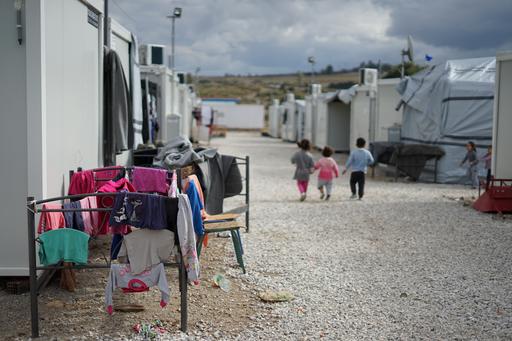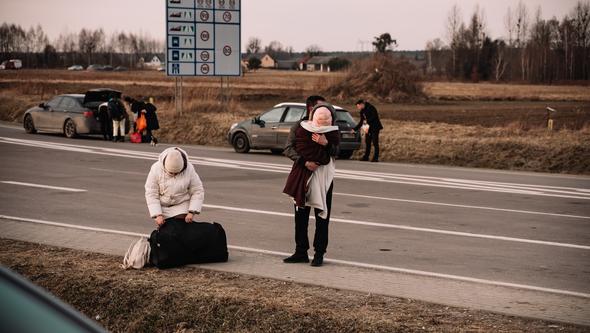
Organizing Integration
The starting point of this multi-disciplinary research programme is the vertiginous growth in international migration and the recent “refugee crisis” in Europe, as well as the ever-present questions of social and economic integration of recent refugees and other immigrants.
The program aims to examine the challenges and opportunities created by novel initiatives that aim to support labour market integration of refugees and other immigrants who have been granted residency in Sweden – including the problems of coordination and organisation between the plethora of initiatives. The research is conducted within a practice-based approach to organising (Gherardi & Nicolini, 2002; Nicolini, 2012) and aims to produce novel knowledge to facilitate the establishment of more sustainable processes and practices for integrating refugees and other immigrants in the labour market. It thereby seeks to make a meaningful contribution to the present debate on the efficacy and sustainability of the integration of immigrants in the labour market.

Integration involves a myriad of actors
While it was previously mainly the responsibility of the state, integration today involves a myriad of actors: municipalities and regional bodies, companies, interest groups, but also community-embedded, civil society organisations as well as individuals, who all design and implement individual and collaborative initiatives meant to facilitate the integration of vulnerable groups into the labour market and society. This poses a great challenge from a coordination and organising perspective.
Contemporary integration initiatives may include procedures for validating prior foreign learning (Andersson & Osman, 2008), education and training programmes, on-the-job training and internships, mentorship programs (Liebig, 2007), cultural sensitivity training, community-embedded economic initiatives, social entrepreneurship (Gutberlet et al. 2016), procedures for allocating apartments, construction projects in specific neighbourhoods, activities aimed at creating spaces for immigrant groups and other vulnerable groups to meet (Barinaga, 2014), and community development activities, to name a few. However, the taken-for-granted ideologies, hidden power relations, and actual practices connected to these initiatives and how they connect to each other – if at all – remain underscrutinised. Therefore, the question of whether or not these ideas and practices have an effect, and if so, which effects, remains open and requires further research.
The importance of locality, space and territory
Similarly, while the importance of locality, space and territory has been shown to be critical in understanding the issue of socio-economic integration of migrants (Samers, 2010), the literature that joins the issues of contemporary migration with urban studies is still scarce (e.g. Glick-Schiller & Caglar, 2010; 2013). Clearly, more attention needs to be paid to how the labour market integration of refugees and other immigrants is coordinated and organised in practice within the specific context of cities and other localities.
Focusing on both top-down and bottom-up initiatives, the program is therefore investigating the following issues:
• What ideas of integration give rise to and are promoted by the contemporary integration initiatives?
• How is the labour market integration of refugees and other immigrants organised in practice? That is, what organisations, groups and individuals are being enrolled in integration activities, and how do they react to these integration initiatives? What do they do?
• What are the effects of these integration initiatives - on foreign-born persons' lives, and on their labour market integration in terms of diversity, gender and power relations?
The program includes five main work packages, employing a combination of archival studies, intense fieldwork, and content analysis of both texts and visual presentations.

The design and methods of the program
The research program “Organizing integration” started 2017-01-01, and the city of Gothenburg serves as a privileged “urban laboratory” (Evans, 2011) where public, private and civil society-led initiatives are conducted via policies and projects. Geographically, the study is conducted in particular neighbourhoods in the city of Gothenburg where issues of marginalisation, stigmatisation and unemployment are considerable. When necessary, the program also zooms out to expand the framing of the problem and the analysis to other neighbourhoods, cities and regions in Sweden and Europe.
Operationally, the program is divided into five parts – so-called Work packages (WPs). The program started off by identifying and analysing integration initiatives and actors involved in the integration of refugees and other immigrants on the labour market in Gothenburg from a historic perspective (from 1945 to the present). Document analysis, mass media analysis, and a scientific and popular literature analysis were conducted and discussed at a workshop with scholars and practitioners held at the beginning of the program (WP1).
WP2, WP3 & WP4 explore labour market integration initiatives run by the private sector (WP2), civil society and NGOs (WP3) and the public sector (WP4) through a range of case studies. The program relies in part on existing collaborative platforms (WP 2, 3 & 4) within and outside the city of Gothenburg. One of the most important one of these is Mistra Urban Futures (MUF), Gothenburg Local Platform, with which the researchers in the program have well-established relationships. Finally, WP5 have created a collaborative platform where practitioners, actors from public, private sector and civil society, the research team, the reference group and other scholars meet as part of two annual workshops to analyse, discuss and communicate the findings from the different work packages together. WP5 also provide an opportunity to further explore the relationships between the myriad of public and private actors involved in integration.

We use a combination of common ethnographic methods applied to the study of organising (Neyland, 2007), visual sociology (Harper, 2012), document analysis, semi-structured interviews and observations (Silverman, 1993; Van Maanen, 1995, Czarniawska, 2014). Our methodological aim is to capture the complexity of the integration phenomenon by exploring its everyday organising through a range of ethnographies of current sites.
For some of the integration initiatives we follow, there is certainty as to their lifespan (e.g. Stadslandet 2017-2019). For other initiatives proposed as case studies in this programme, it is impossible to foresee how long they will be operative (e.g. Swedbank’s “Äntligen job” or other customised integration initiatives at companies; “100-klubben”; “Snabbspåret”). In some cases we have conducted a follow-up of the initiatives (e.g. the entrepreneurship initiative “One Step Change” aimed at creating employment among immigrants and women, to name a few) at certain intervals, and/or some time after the initiatives have been completed.
Participating researchers, program organisation and program leadership
The program “Organizing integration” is a multidisciplinary research program – one of the core programs at GRI. The program currently includes one economist, three business economists, a sociologist and a public administration scholar from the University of Gothenburg (Gothenburg Research Institute (GRI), Department of Business Administration & School of Public Administration) as well as an architecture technologist from Chalmers Technical University and a business economist from the Copenhagen Business School in Denmark. Two post docs and one doctoral candidate have recently been be recruited. The programme is also connected to the Mistra Urban Futures (MUF) Local Interaction Platform and the Social Science Park at “Utvecklingen Nordost”.
Host institution
Gothenburg Research Institute (GRI), School of Business, Economics and Law, University of Gothenburg.

